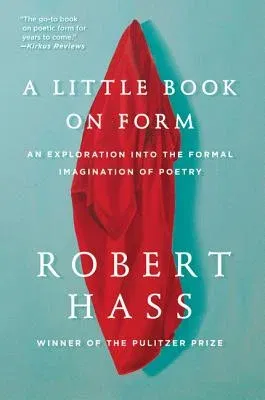From the former U.S. Poet Laureate, Pulitzer Prize and National Book
Award-winner, an illuminating dissection of poetic form for students,
enthusiasts, and newcomers alike
A Little Book on Form brilliantly synthesizes Hass's formidable gifts as
both a poet and essayist. In it he takes up the central tension between
poetry as genre and the poetics of the imagination. A wealth of
vocabulary exists with which to talk about poetry in traditional formal
terms. But the more intuitive, creative parts of a poet's work and
processes are more elusive: if the most interesting aspect of form is
the shaping power of the essential, expressive gestures inside it, how
do we come to a language in which to speak about form as the search for
the radiant shapes-- the wholeness or brokenness--we experience inside
powerful works of art?
In suggestive, informal "notes," Haas thinks through the idea of a poem
from its barest building blocks--the one line haiku, the brief epigram
or prayer--to the complex villanelle and sonnet, and beyond them, to the
grand forms of elegy and ode through which poets across human cultures
have investigated the shapes of grieving and desiring. His approach
singularly employs postmodern perspectives on shape, thought, feeling,
content, and movement, calling on Catullus and Allen Ginsberg, Kobayashi
Issa and Czeslaw Milosz. Begunb as a project for students of poetry, A
Little Book on Form is anything but--Hass investigates the ancient
roots of the poetic impulse, taking a wide-ranging look at the most
intense experience of human thought and feeling in language.

